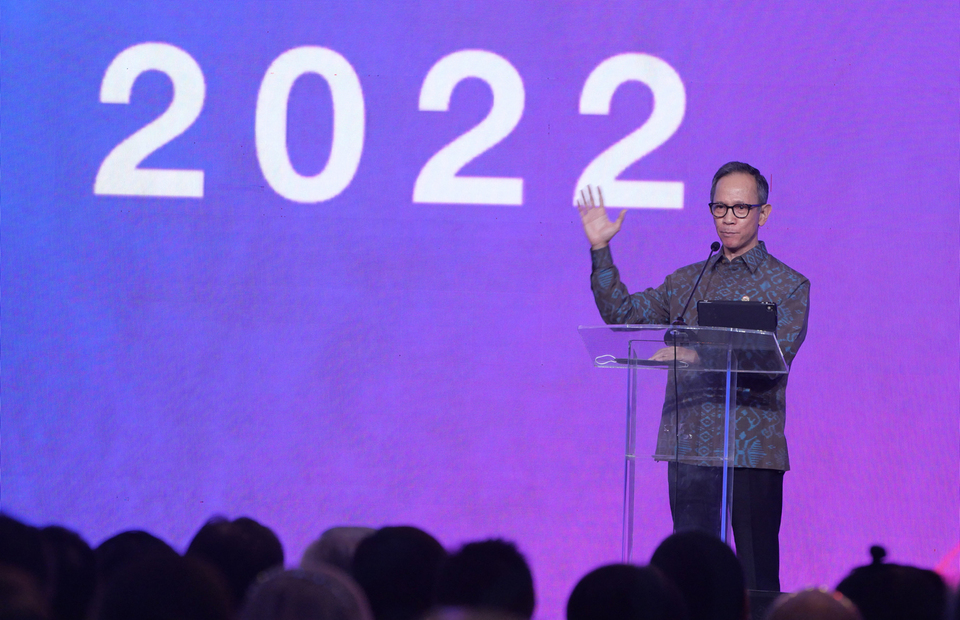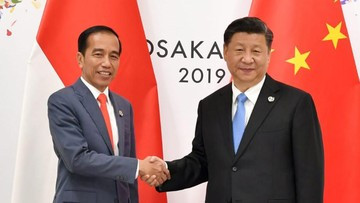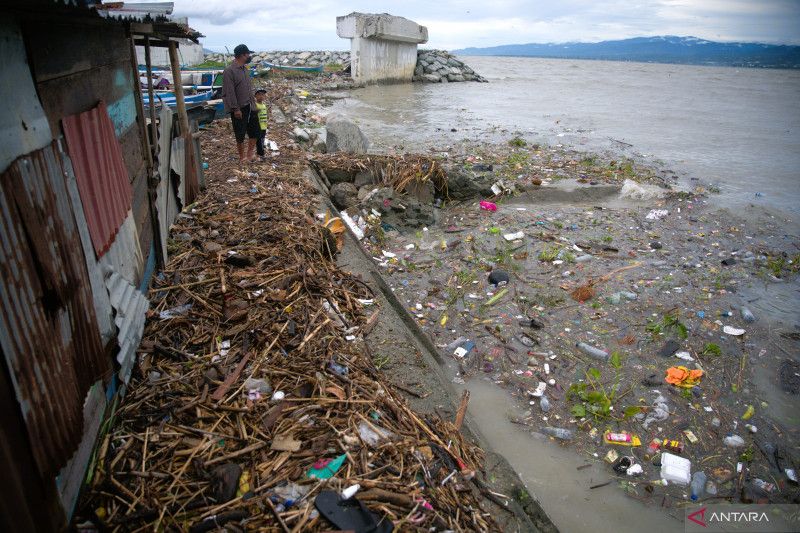Jakarta. Indonesia is in a better place compared to many other countries facing the perfect storm, a combination of high inflation, recession, and the fallout of escalated geopolitical conflicts, that is likely to hit the global economy next year, top officials and experts said Tuesday.
The largest economy in Southeast Asia should take refuge in the facts that its domestic demand remains strong, inflation is under control, food supplies are secured, the Covid-19 pandemic is receding, and China’s recovery is likely to prop up demand for its main commodities.
Indonesia’s current economic fundamentals are inversely proportional to the 28 countries queuing up for assistance from the International Monetary Fund (IMF). Indonesia’s economic growth rate in the third quarter of 2022 is estimated to reach 5.2 percent and 4.8 percent in the fourth quarter.
On Tuesday, the fund cut its projection for the country’s 2023 growth to 5 percent next year from 5.3 percent in its July projection. IMF also cut the 2023 global economic projection to 2.7 percent from 2.9 percent.
“We have to remain optimistic. But stay careful and vigilant,” President Joko “Jokowi” Widodo, when opening the 2022 BNI Investor Daily Summit at the Jakarta Convention Center on Tuesday. The summit gathers top government officials, business leaders, and international experts to share insights about economic prospects and the latest business trend.
World leaders and economic experts are now bracing for a perfect storm to hit the global economy next year. They expect high inflation, economic contraction, and geopolitical problems piling simultaneously on its shaky recovery from the Covid-19 pandemic.
“We are facing a perfect storm, no doubt about it. There are food, fuel, debt, and climate crises,” Jayati Ghosh, the professor of economic development at Jawaharlal Nehru University in New Delhi.
High inflation in developed countries forces central banks to increase interest rates, forcing businesses to delay their expansion.
“And we are now facing a very big spillover effect of monetary policy. These interest rate increases are the biggest coordinated rise in interest rates in the past half-century,” Ghosh said.
She said developing countries like India and Indonesia faced the fallout as capital flights weakened their currency and undermined their ability to import critical commodities like food and energy.
Keneth Rogoff, a professor of Economics, and Maurits C. Boas, Chair of International Economics at Harvard University, warned that uncertainties from an escalated Ukraine and Russia war could prolong the current high energy price regime and inflation, forcing the central banks to keep the high-interest rate longer.
“There will be a difficult adjustment to the advanced economies. They will have to get used to the fact that debt would be no longer so cheap,” Rogoff said.
He said Europe would likely fall into recession next year, and the United States was in a “productivity recession” with markets unable to absorb the effects of rising interest rates fully. According to Rogoff, the Federal Reserve will continue to raise interest rates to 4.5 percent and maybe even 5 percent in 2023.
Contagion Channels
Indonesian economist Chatib Basri said the Southeast Asian country would feel the impact of the global economic recession through the trade and financial channel next year but unlikely to experience contraction.
“If I was asked whether Indonesia will go into recession or not, my answer is no,” Chatib said.
The former finance minister said Indonesia managed to escape the global financial crisis in 2008 due to “good policy response and good luck. I think a similar situation will happen again.”
Also, Indonesia’s share of exports to its gross domestic product (GDP) is relatively small.
“I can imagine that a global shock will hurt a significantly affected country like Singapore as the share of trade to GDP is more than 200 percent, but in the case of Indonesia, exports to Our GDP is around 25 percent,” he said.
China, which is Indonesia’s leading trading partner, is also expected to fare much better next year, likely to prop up demand for Indonesia’s commodities.
Justin Yifu Lin, the founding director of the China Center for Economic Research, said China’s economy would rebound and expand by at least 8 percent next year from an estimated 3 percent this year. Lin listed several factors that support the surprise recovery.
“One of them is due to the adjustment of the Covid-19 policy. Vaccination rates are also increasing, especially for vulnerable people such as the elderly. Of course, China’s medical capacity will also be better prepared in an outbreak,” said Justin.
“Then, China is good at maintaining high economic growth. China is still in the catching-up stage, so there is still wide room for growth. China is also rich in reserves for investment. There is a determination from the government to maintain growth,” Justin said.

Mahendra Siregar, the chairman of the Financial Services Authority (OJK), speaks at the BNI Investor Daily Summit 2022 on Tuesday. (B1/David Gita Roza)
Strong Fundamentals
Coordinating Minister for Economic Affairs Airlangga Hartarto said leading indicators for Indonesia’s economy, including consumer confidence, purchasing manager index, vehicle sales, and electricity consumption, still, show a strengthening trend.
“Indonesia’s level of resilience is quite high and relatively strong. We also observe that capital inflows are still at inflow due to market confidence in Indonesia’s economic fundamentals,” Airlangga said in a keynote speech at the BNI Investor Daily Summit 2022.
Mahendra Siregar, the chairman of the Financial Services Authority (OJK), said Indonesia’s financial sector was in a solid position to weather the perfect storm next year.
“We can report the readiness of the financial services industry in one sentence; it has recovered from the pandemic and is ready and on alert to continue and maintain economic growth. And, it is ready to face the global economic challenges that are getting harder,” Mahendra said at the summit.
He said loan growth would reach around 10 percent this year. Working capital loans grew 12-13 percent, compared to 8-9 percent for investment loans. “I think it aligns with the context of our economic recovery,” he said.










